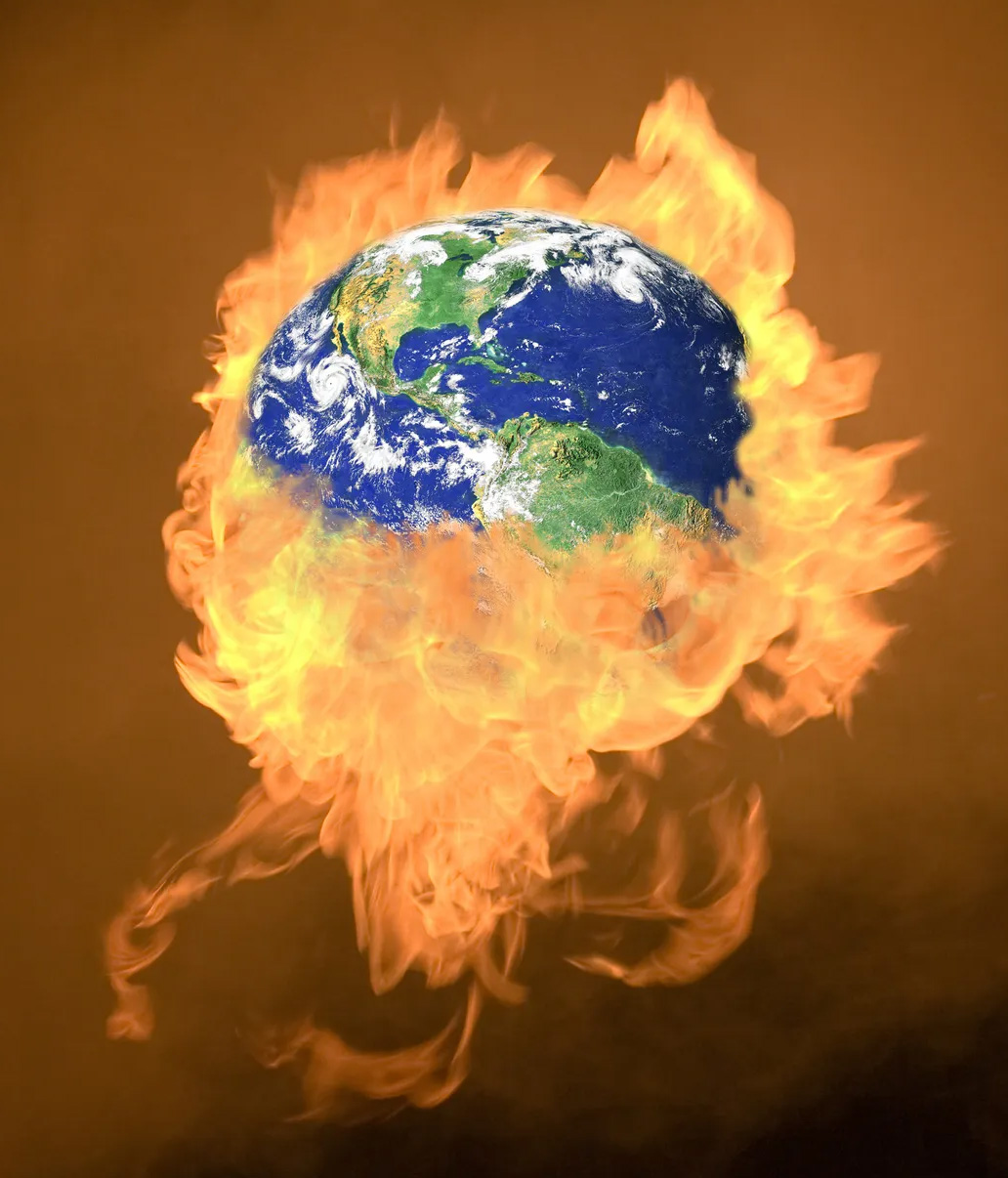Exploring the Global Consequences of a Warming Planet by Munir Ahmed
Climate change refers to long-term shifts in temperature, precipitation patterns, and other atmospheric conditions on Earth. The very fabric of our natural world is under siege by an enemy of our own making. Detrimental activities burning fossil fuels, deforestation, and industrial processes, increase the concentration of greenhouse gases (GHGs), such as carbon dioxide, methane, and nitrous oxide in the atmosphere. These gases trap heat and lead to global warming, which in turn affects various aspects of the environment and human life.
Recent data reveals that global temperatures are rising at an alarming rate, surpassing historical norms and triggering a cascade of extreme weather events. Hurricanes, wildfires, droughts, and floods—each more severe than the last.
Global temperatures are rising at an alarming rate, surpassing historical norms
Rising Temperatures
Despite negotiations at the UNFCCC Conferences of Parties (COPs), industrialized nations have done little to control greenhouse gas emissions. As a result, average global temperatures have continued to rise, leading to more frequent and intense heatwaves. These heatwaves lead to a surge in heat-related illnesses and fatalities, disproportionately affecting vulnerable populations especially those living in urban areas, low-income communities, outdoor workers, pregnant women, children, and the elderly.
The Intergovernmental Panel on Climate Change (IPCC) synthesizes and assesses scientific literature on climate change, providing comprehensive reports that reflect the state of knowledge on various aspects of climate science. The IPCC has documented that from 1900 to 1940, global temperatures showed a relatively stable or slightly warming trend influenced by factors such as solar radiation and volcanic eruptions. However, from the mid-20th century onwards, global temperatures have shown an increasing trend due to human activities. This upward trend has become particularly evident in the 21st century, with 2015, 2016, 2020, and 2021 standing out as the hottest years ever recorded.
NASA reports that Earth was about 1.36 degrees Celsius (about 2.45 degrees Fahrenheit) warmer in 2023 than in the late 19th century (1850-1900) preindustrial average. The past decade has shattered temperature records, becoming the hottest in history.
Extreme Weather Impact
The severity of climate change is closely linked to rising temperatures and their intensity, with regional variations. Climate change has altered precipitation patterns, leading to more intense storms, floods, and droughts in different regions. These events have caused widespread damage to infrastructure, homes, agriculture, and livelihoods, displacing communities and exacerbating food and water insecurity.
In 2022, according to the World Bank, Pakistan alone lost US$30 billion in infrastructure, agriculture, and livestock, along with hundreds of human lives. Climate induced migration has become a major issue, with over a million people displaced from Balochistan, Sindh provinces and KPK.
Other major climate induced disasters include melting glaciers and ice sheets, along with the therma lexpansion of seawater, contribute to rising sea levels. This poses risks to coastal communities through increased coastal erosion, inundation of low-lying areas, and saltwater intrusion into freshwater sources. In Pakistan, the rate of glacier melt has nearly doubled over the past decade, increasing the frequency of Glacial-Lake Outburst Floods (GLOF), causing severe downstream flooding and infrastructure loss.

Impact on Agriculture and Food Security
Changes in temperature and precipitation patterns have affected crop yields and livestock productivity. Extreme weather events like droughts and floods have impacted or destroyed crops, leading to food shortages and price volatility, threatening food security, particularly in developing countries reliant on agriculture.
According to the Food and Agriculture Organization (FAO), climate change has led to a decline in global agricultural productivity growth rates. For example, since 1960, climate change has reduced the yield potential for staple crops like maize and wheat by 2-6 percent per decade in some regions. Looking ahead to 2050, water scarcity intensifies further decrease in global crop yields by up to 30 percent, causing agricultural losses of around $96 billion annually in developing countries, as estimated by the World Bank.
Addressing climate change requires global cooperation, with developed industrial nations seriously considering actions agreed upon in the UNFCCC COPs. COP 29 shall be a major breakthrough for implementing the Paris Agreement, ensuring developing countries’ representation in the Loss and Damage Fund, and efficient contributions from developed industrial states to countries in need.
Mitigation efforts must focus on reducing greenhouse gas emissions, adaptation strategies to build resilience, and investments in sustainable development practices. Efforts to combat climate change are crucial not only for protecting the environment but also for safeguarding human health, promoting economic stability, and ensuring social justice worldwide.
The author can be reached at devcom.pakistan@gmail.com







